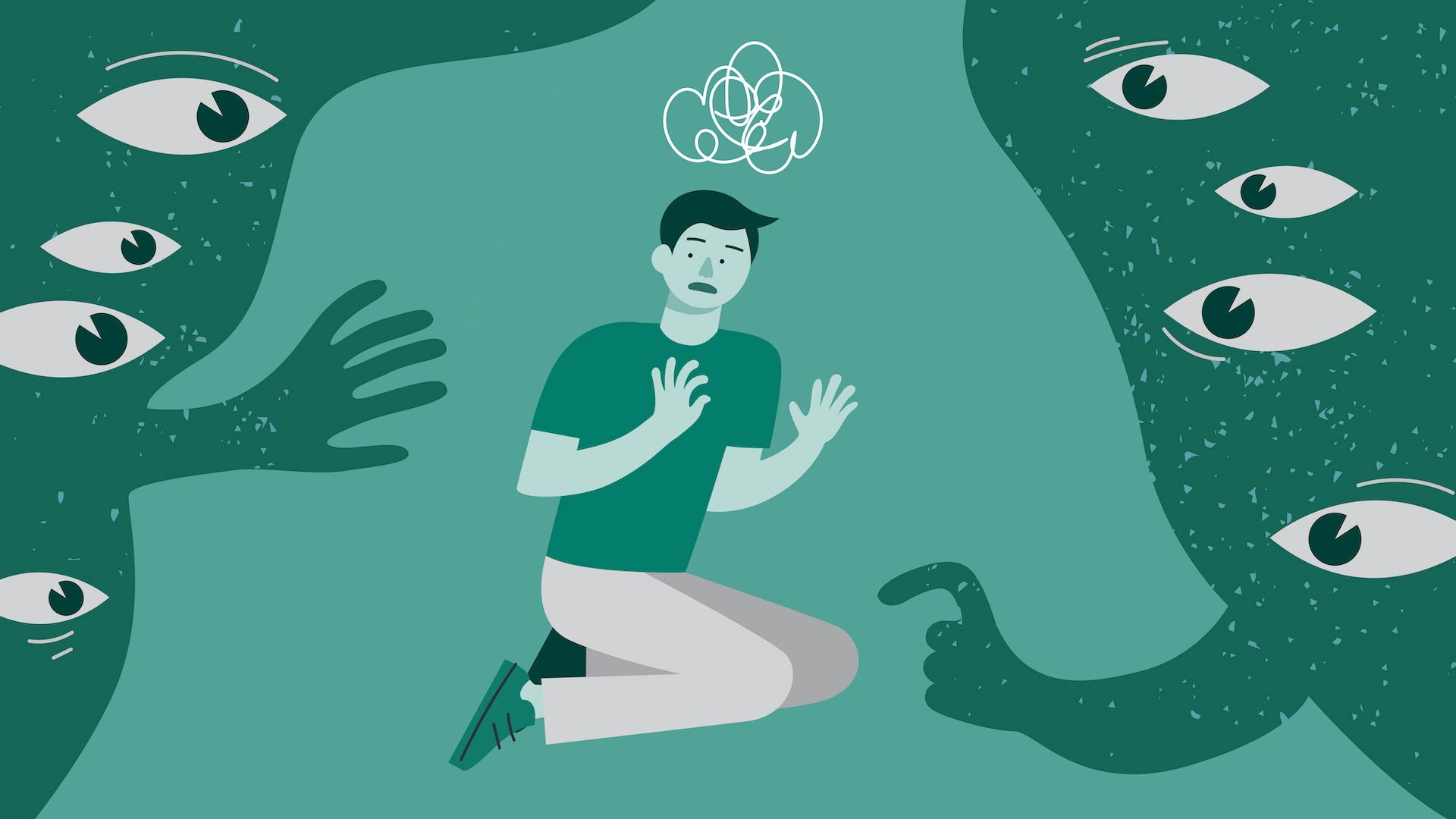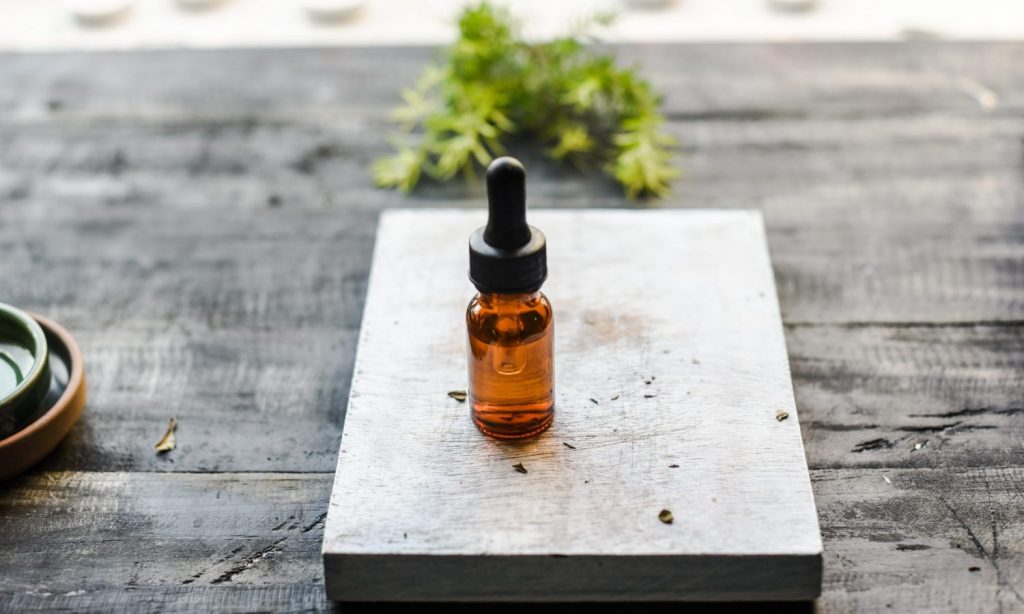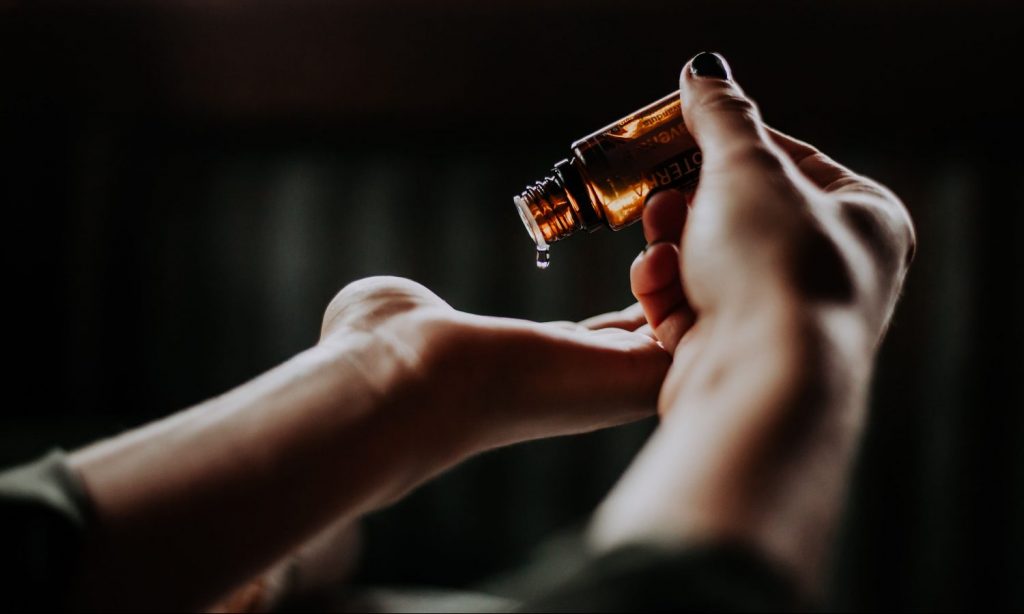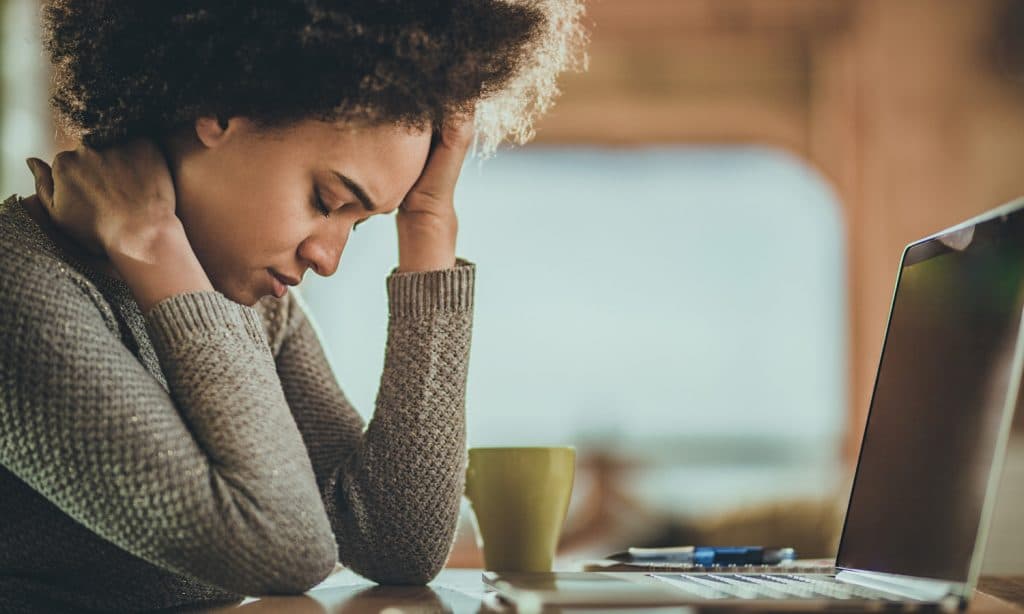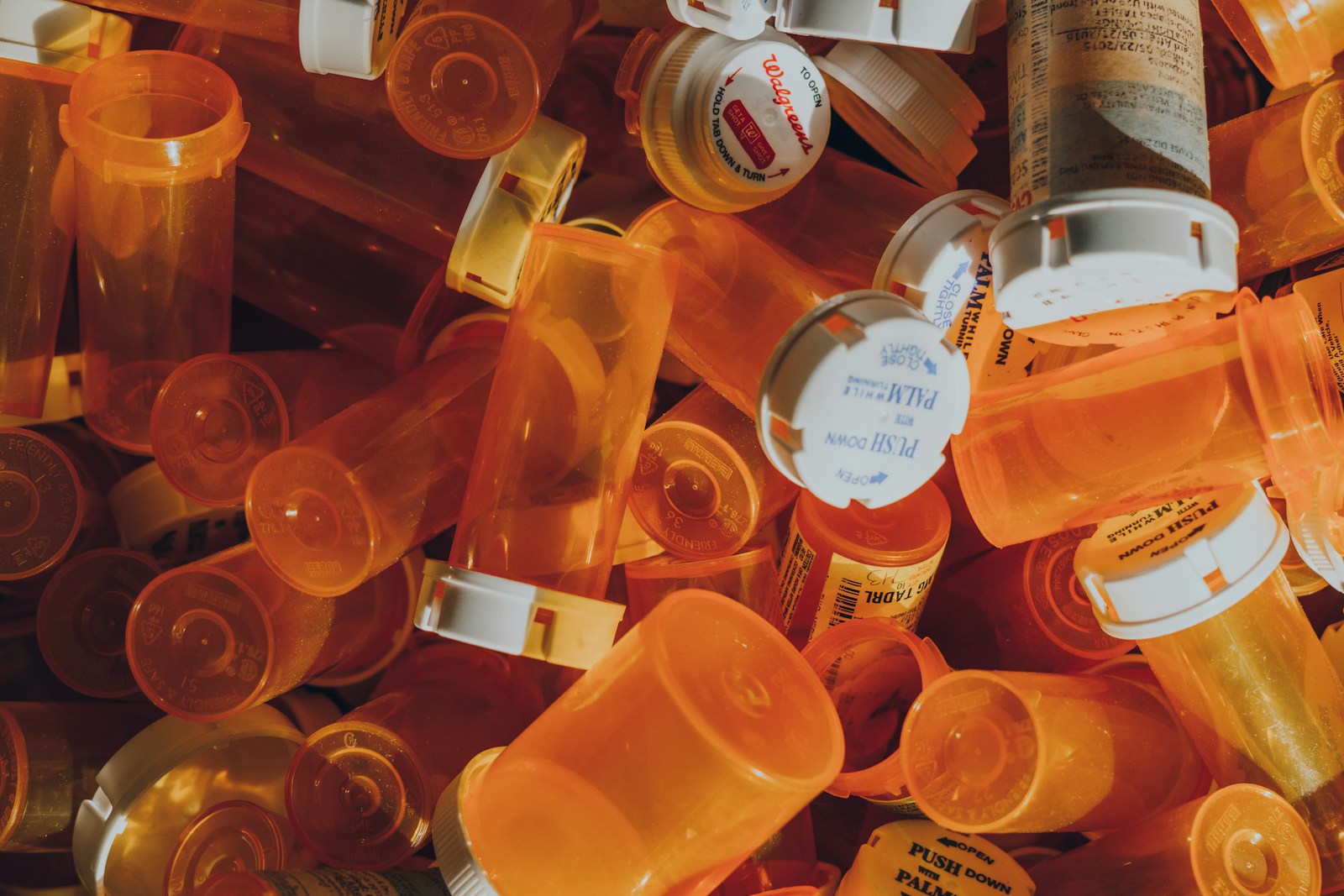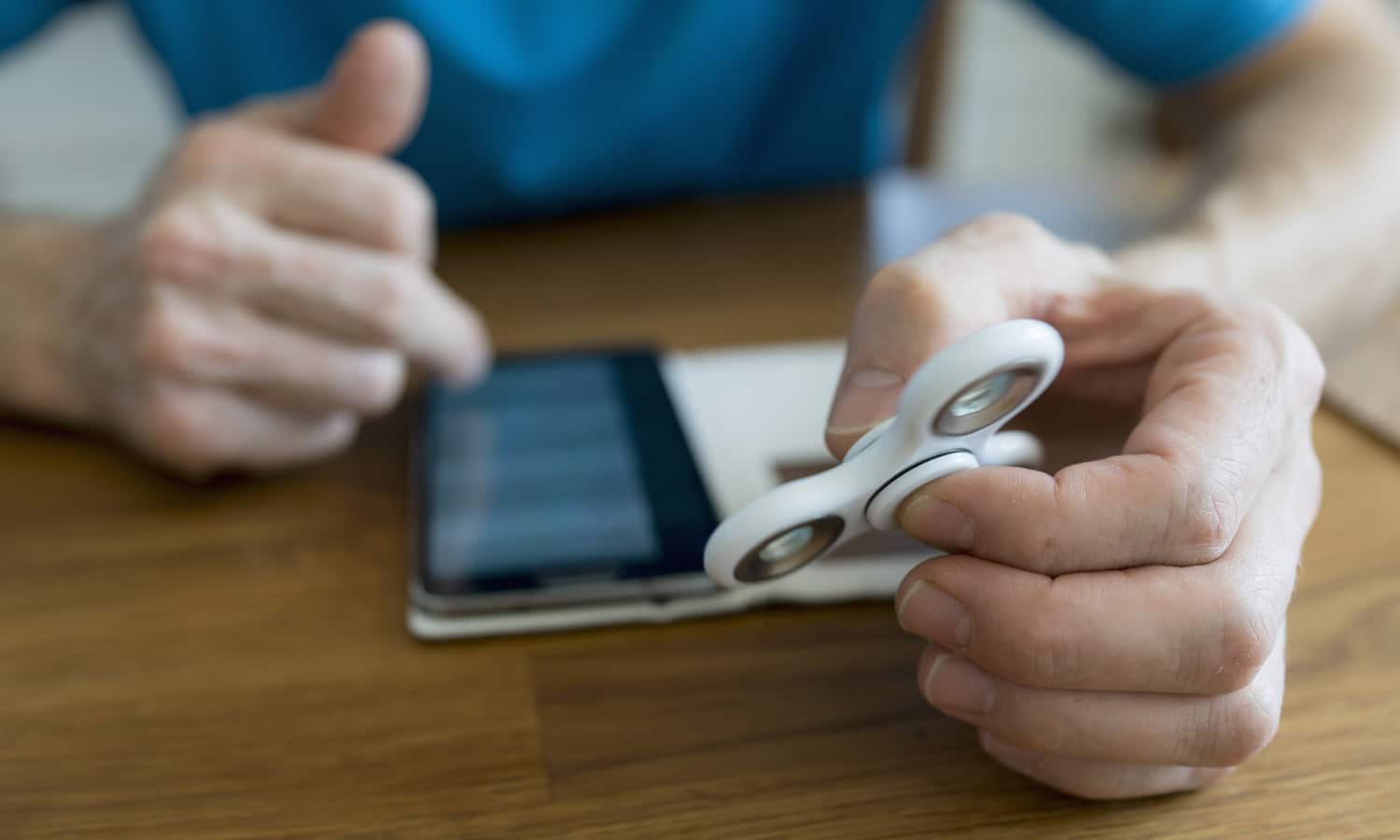Leafly’s Dr. Nick Jikomes explains why weed gives some people The Fear—and why it’s sometimes beneficial to face it.
Hip surgeries are painful. Patients require potent pain medication afterwards, often for extended periods. Some years ago, a woman named Jo Cameron had hip surgery but responded in a strange way: she reported a lack of pain, saying she didn’t need pain meds. Researchers were intrigued. They studied her personality and emotional processing. In addition to never having been bothered by pain, she received very low scores on measures of anxiety and said she had never really been afraid. Jo was an abnormally carefree, emotionally resilient person.
Scientists dug deeper. They discovered a peculiar mutation in her genome: a chunk of DNA overlapping the gene for an enzyme called “FAAH” (fatty-acid amide hydrolase) was missing. FAAH breaks down anandamide, one of the body’s major endocannabinoids. With lower levels of FAAH, Jo had higher levels of anandamide–more than twice as much as the average person. Her relative inability to feel pain, fear, or anxiety seemed to be linked to her unusually high levels of anandamide.
Here’s a clip from a conversation I had with Dr. Matthew Hill, a neuroscientist involved in studying Jo Cameron, describing her case in more detail:
Pain, fear, and anxiety: What are they?
Entire books have been written about what emotions are and how they relate to the brain. Here’s how I think about it: at any given moment, your brain is generating an emotional state. There are many types. Each emotional state corresponds to a set of complex, dynamic patterns of neural activity across the brain. Each of these brain states entails (1) a specific type of feeling, and (2) a propensity to move the body in certain ways.
When you’re feeling “cozy,” you have a high propensity to move your body to the couch, curl up under a blanket, and sit still. You have a low propensity for running a marathon. The emotions you feel are a way for your brain to motivate you to behave in certain ways. When you feel hungry, you are motivated to find and eat food, which then makes this uncomfortable feeling disappear. You are less motivated to keep working, read a book, or act friendly (you get “hangry”). Doing those things is not associated with making the feeling of hunger dissipate.
To learn more about how neuroscientists are unraveling the relationship between brain states, emotions and behavior, check out my conversation with Dr. David Anderson:
So, what are pain, fear, and anxiety? I think of them as patterns of feelings corresponding to certain patterns of electrochemical activity in the brain, each of which favors a specific set of behaviors. Let’s consider them one at a time.
When you poke your finger with a pin, two things happen: you experience a painful sensation and execute an avoidance behavior. Painful stimuli are things that may cause tissue damage to your body. The painful sensations they induce motivate you to move your body away from the perceived cause of those sensations. When poked with something sharp, you reflexively withdraw your hand away from that object. The amount of time your pain lingers is proportional to the amount of tissue damage done. A quick pinprick hurts for seconds, then subsides. Third-degree burns hurt a lot, for a long time.
Shop highly rated dispensaries near you
Showing you dispensaries near
Apart from people like Jo Cameron, we’ve all felt afraid. Fear is an emotional state motivating us to avoid things that might cause physical pain. You’re hiking in the woods. You see a bear and feel scared. This feeling boosts the probability of behaving in certain ways, such as freezing in place (to avoid detection) or running in the opposite direction (to move away from danger). Being afraid of the bear does not motivate you to walk closer and start petting it. When our emotional systems are working appropriately, fear motivates us to avoid real danger.
Feeling inappropriate fear is when our brains motivate us to avoid things that won’t actually cause harm. Think of an irrational phobia, or the generalization of fear to inappropriate contexts. The latter is what you see with things like PTSD—a high intensity emotional experience that causes the brain to rewire itself in a way that now makes you afraid of any loud booming noise, even those that are harmless. Extremely intense emotional experiences (traumas) can cause the brain to generalize or “overlearn” associations between the environment and its emotional states. Treating conditions like PTSD essentially requires unlearning. In behavioral neuroscience, this type of unlearning is called “fear extinction” (more on that below).
Anxiety is related to fear, but different. Fear is directed at a specific, known stimulus (e.g. the bear you see). Anxiety is more general and anticipatory (“I might see something scary on my hike”). We are typically afraid of potentially pain-inducing things that we currently sense and anxious about things that might be scary in the future. Fear motivates us to avoid things we perceive right now. Anxiety motivates us to avoid coming into contact with things that might be painful, later.
Jo Cameron, the woman with high levels of the endocannabinoid anandamide, felt abnormally low levels of pain, fear, and anxiety. Intuitively, we all know these feelings are linked. Jo Cameron wasn’t bothered by them. While this had the benefit of keeping her in perpetual good spirits, she also had trouble learning to avoid things that actually caused her harm (see this conversation for examples).
Endocannabinoids, fear memories, and anxiety
Animals naturally learn by association. If an arbitrary stimulus, such as a beep, is paired with a painful outcome, such as a shock, animals quickly learn to associate the shock with the beep. They will then attempt to avoid the shock when they hear the beep by engaging in avoidance behavior. This is a “fear memory.” If the same animal then repeatedly hears the same beep but the shock is removed from the equation, it will pretty quickly stop caring about the beep. The beep-shock association is suppressed. This is “fear extinction.” Endocannabinoids are involved in various aspects of emotional processing, including the phenomenon of fear extinction.
Animals need to quickly and flexibly make and break emotional associations, especially if they live in a dynamic environment with lots of change. If something that used to be dangerous no longer is, you want your fear and avoidance of it to go away, too. When fear memories fail to “extinguish,” we remain afraid of things that no longer pose a threat. When fear memories are “too strong,” they can trigger persistent states of anxiety. When emotional experiences with fear-inducing stimuli are especially intense, we can form associations that induce fear and anxiety to harmless stimuli or in inappropriate contexts. You can think of something like PTSD as the over-generalization of fearful associations and the failure of fear extinction to take place.
Related
How to order weed delivery online with Leafly
Endocannabinoids like anandamide play an important role in the process of forming and forgetting emotional associations. In general, higher anandamide levels are associated with lower anxiety levels. Anandamide also tends to boost fear extinction (weakening fear memories). Recall Jo Cameron: her anandamide levels were so high that she essentially couldn’t form strong fear memories in the first place, always exhibiting a carefree, low-anxiety attitude.
Because endocannabinoids are an important part of the way our brains naturally regulate emotional memories and behaviors, it makes sense that plant cannabinoids like THC would be able to affect these very same things.
Anandamide, THC, and anxiety
One of the most common side effects of THC, especially when it’s consumed at high doses, is paranoia–you become anxious or fearful that something bad might happen. THC’s psychoactive effects come from its ability to activate CB1 receptors in the brain, similar to anandamide. But if high levels of anandamide decrease anxiety, why would high levels of THC increase anxiety?
Endocannabinoids like anandamide are produced and used on-demand, exactly when and where they are needed. The body does not produce a whole bunch of it and send it everywhere. As a result, natural anandamide release produces a very different pattern of CB1 receptor activation compared to THC consumption. The body naturally restricts CB1 receptor activation by anandamide with pin-point accuracy, releasing anandamide at very specific locations, briefly.
Instead of giving up or freaking out the next time you feel afraid (or anxious after too much THC), see if you can endure.
When you consume THC it gets into your bloodstream and more-or-less goes everywhere. THC molecules activate CB1 receptors all over the brain, at the same time. This is why we don’t walk around feeling stoned all day even though we have a “THC-like” molecule in our brain. It’s also related to why THC can produce different and even opposite effects at low versus high doses (the “biphasic effect”).
Even though THC gets into the bloodstream and goes “everywhere,” the biology is more complicated than that. With a relatively low dose of THC, some parts of the brain, “deeper” inside, might not see as much THC as others. Different brain regions also have different densities of CB1 receptors, which can effectively make some regions more THC-sensitive than others. For these types of reasons, different doses of THC can affect different groups of neurons in different parts of the brain. At a relatively low dose, one set of brain cells is primarily affected. At a much higher dose, those same cells are affected and a bunch of other neurons may also get stimulated–neurons that weren’t affected much by the lower dose.
Related
8 ways to sober up from being too high from weed
The end result is that a very different pattern of activity, and therefore a different emotional state, can emerge across the brain at low versus high doses of THC. This is why you can have the opposite emotional experience in response to the same drug. With THC, lessened anxiety is associated with lower doses, while higher doses are more likely to trigger anxiety and paranoia.
The exact dose these things happen at depends on your individual biology, such as the natural density of CB1 receptors across your brain and your tolerance level. Your recent history of THC use will directly affect how many CB1 receptors are expressed in different parts of your brain. That’s why there’s no one-size-fits-all dosing chart available that will tell you exactly how you can expect to feel from THC consumption.
Cannabinoids and the value of pain, fear, and anxiety
Pain, fear, and anxiety are generally experienced as negative emotions. We don’t like the way they feel. But bad feelings do us a lot of good. Without them, we wouldn’t be motivated to learn how to avoid the things in life that cause real harm. People with rare genetic conditions preventing them from feeling any pain tend to have shorter lifespans. They may not have to suffer through the painful sensations the rest of us do, but they also fail to learn and avoid what harms them. They might stand up and walk on a broken leg, or stick their hand in boiling water to grab a utensil.
We can also learn to overcome negative emotions like pain, fear, and anxiety. We can even learn to like them. The burning sensation of lactic buildup in your muscles can be very uncomfortable, but many learn to tolerate and even enjoy those sensations as part of their fitness routine. Because negative emotions often come bundled with excitement (physiological arousal), we often learn to seek them out within safe contexts. We voluntarily watch scary movies because we know we aren’t actually in danger. In that context, fear is exciting rather than debilitating; anxiety is felt as suspense rather than suffering.
Many of the world’s most influential spiritual and philosophical traditions teach that life is nothing more than pain and suffering. Learning what these negative emotions have to teach, and enduring, is what it’s all about. Cannabinoids are just one of the important biological mediators of how our emotions and behaviors intermingle as we experience life. Instead of giving up or freaking out the next time you feel afraid (or anxious after too much THC), see if you can endure. Learn the lessons your emotions are meant to teach.



